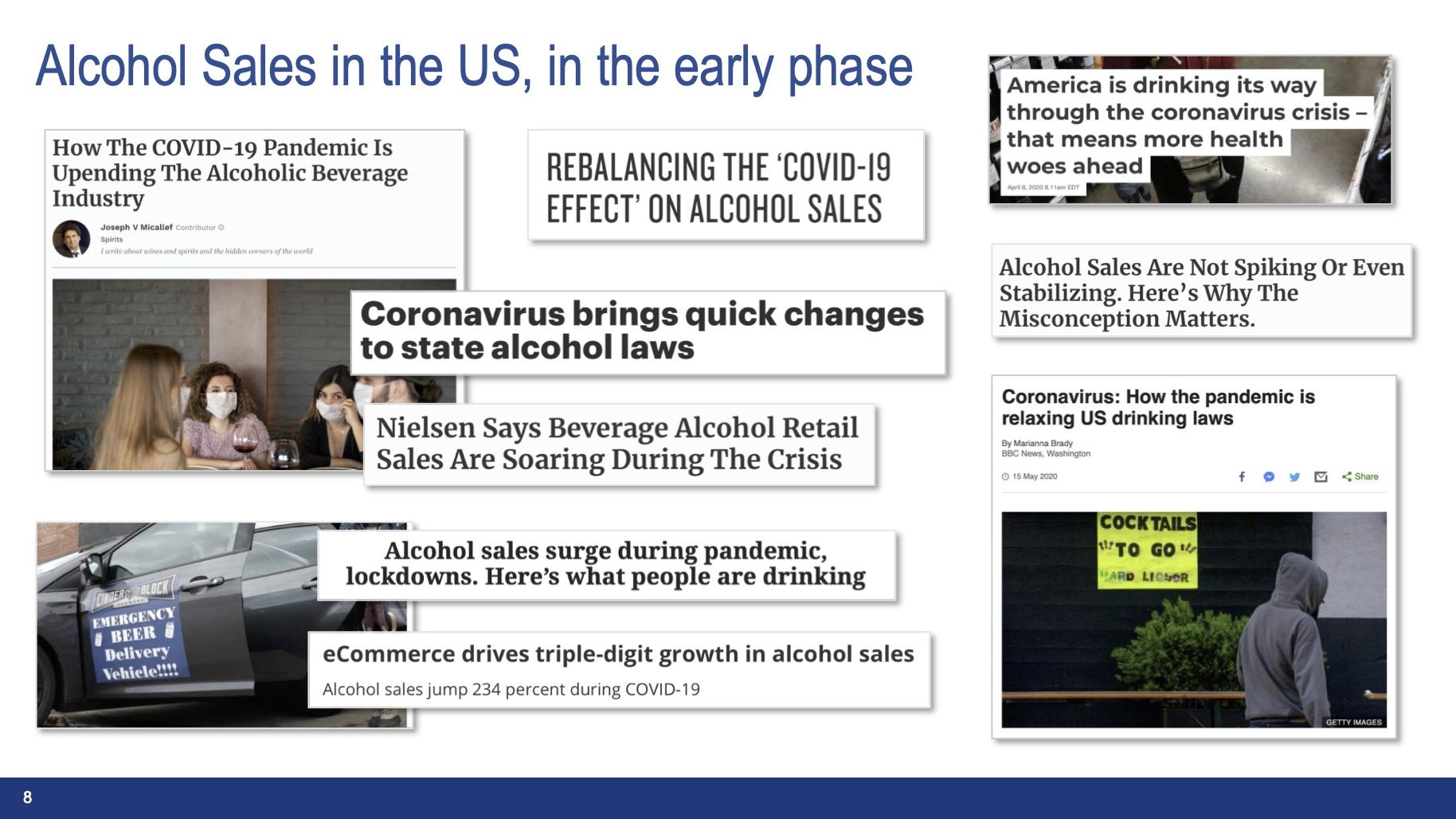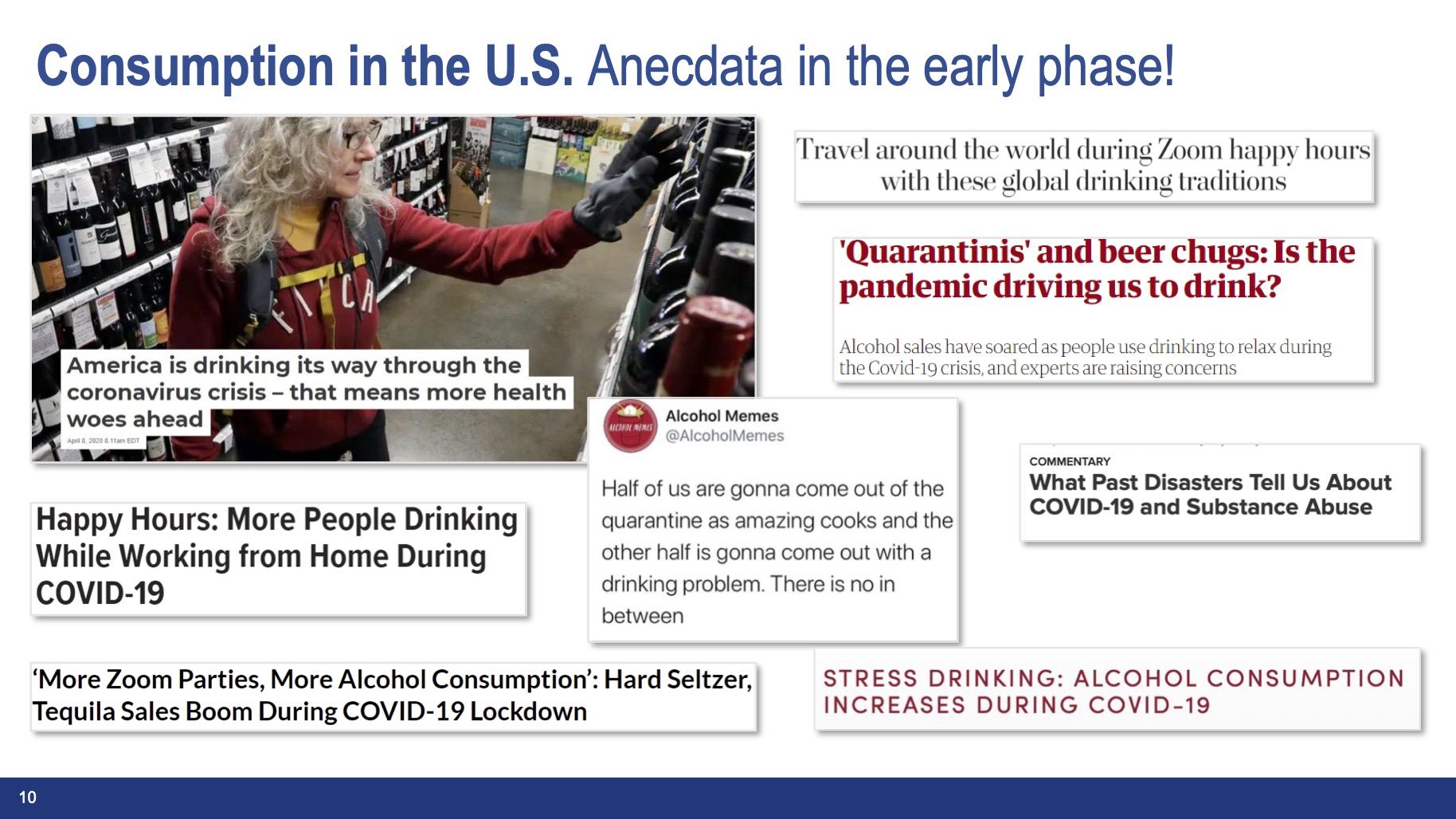One in 10 adults struggles with alcohol. Alcohol is one of the most common forms of substance misuse, and a leading cause of preventable death and illness. Drinking more is also a major cause of work accidents and lost productivity, as well as a driver of broken family and personal relationships.
Alcohol Use Disorder is on the rise
Since the start of COVID, Ria Health, a national tele-health company focused on treating alcohol use disorder (AUD), has found a 20 percent increase in female patients under 40. With Ria seeing a 500 percent increase in patients since the pandemic started, nearly 60% of its patients are female – 2 times the national average.
A recent COVID-related study showed 300% increases in drinking for women with children under the age of 5, Women under 40 were more likely to have had school-age children at home during the pandemic and juggling homeschooling, work, and family challenges. A considerable amount of data shows that women are more likely to drink to regulate negative affect and stress, while men are more likely to drink for alcohol-related positive reinforcement.
Women were drinking more during the COVID pandemic
The 2019 Coronavirus pandemic has brought about significant and unprecedented changes to the modern world, including stay-at-home orders, high rates of unemployment, and more than a hundred thousand deaths across the United States.
In The Business of Health this week, Gisèle Wertheim Aymés speaks to Dr John Mendelson, Professor of Clinical Medicine at the University of California at San Francisco, and Chief Medical Officer of Ria Health, a company dedicated to delivering accessible and effective treatment that helps people challenged with alcohol misuse.
Changing your relationship with alcohol
Ria Health’s evidence-based tele-health alcohol treatment program helps people drink less and live better by changing their relationship with alcohol. It combines medical science with technology, and delivers a private and personalized treatment program that has helped thousands of online registered members achieve their goals of reducing or stopping their consumption of alcohol.

Improving outcomes
Some doctors believe that people struggling with alcohol are difficult patients with an intractable condition. Many patients who sign up for services such as Ria Health do so after being turned away by doctors, said Mendelson.
“There was an unmet need of people seeking another pathway for alcohol addiction treatment, and we put together a program that doesn’t require you to spend 28 days in a residential treatment program or four to eight hours a day, for three to four weeks, in an intensive outpatients’ program – something that was more medical and geared to people’s schedules. We support those who go to AA but add evidence-based treatments that improve outcomes.” John Mendelson MD.
The pandemic has taken its toll on women
Alcohol misuse can result from a complex number of factors, including stress, depression and anxiety, as well as an individual’s genetics, family history and socio-economic circumstances. Many people quit their heavy drinking habit on their own, or through self-help programs such as Alcoholics Anonymous or SMART Recovery. But the relapse rates are notoriously high.

Alcohol addition is life threatening
“Alcohol is numerically larger [than other forms of substance misuse] in terms of number of deaths. There are 95,000 of deaths in the United States [annually] due to alcohol, most of which are the result from the impact heavy drinking has on various types of cancer, liver disease, and heart disease. Alcohol is the seventh leading cause of death worldwide. One of our missions is to address that. We want to do so by having something affordable, safe and accessible to everybody. That’s been our focus. Medical treatments for alcohol are not the same as for opiates or nicotine – hence, at Ria, we focus only on alcohol addiction.”
The disorder can go untreated
Alcohol misuse has increased over the past year as the effects of the pandemic have led many anxious and isolated people to drink excessively. However, despite its prevalence, most individuals with the disorder go untreated, even if they confide in their family doctor or other healthcare professional.
![drinking more [longevity live]](https://longevitylive.com/wp-content/uploads/2019/12/woman-wearing-red-shirt-drinking-948199-620x434.jpg)
Research shows that alcohol use and misuse among women are increasing. And women who drink are at higher risk of certain alcohol-related problems than men.
In closing
“There’s been an increase in women drinking for the last 30 years, and it’s been accelerating in the last 10 years.
With the emancipation of women have come increased social pressure and increased social opportunities for drinking, and an acceptance that women can get just as messed up as guys in their alcohol use.
“If you can consume large doses of alcohol and not appear to be terribly affected, your risk of developing a dependence is higher. This is the kind of thing you need to get through to young people: the fact that if you can hold liquor and drink someone else under the table is not good news.” John Mendelson MD.
Watch the video
This Business of Health video, produced by The Nielsen Network for Longevity contains the full dialogue of this interview, and you can watch it below.
References
How has drinking preferences changed during the pandemic. Webinar and slides: https://www.rti.org/sites/default/files/fy21_covid_drinking_webinar_slides_final.pdf
NCBI resources. Drinking to cope with the pandemic: Lindsey M. Rodriguez,a,⁎ Dana M. Litt,b and Sherry H. Stewartc



![women [longevity live]](https://longevitylive.com/wp-content/uploads/2020/01/photo-of-women-walking-down-the-street-1116984-100x100.jpg)










